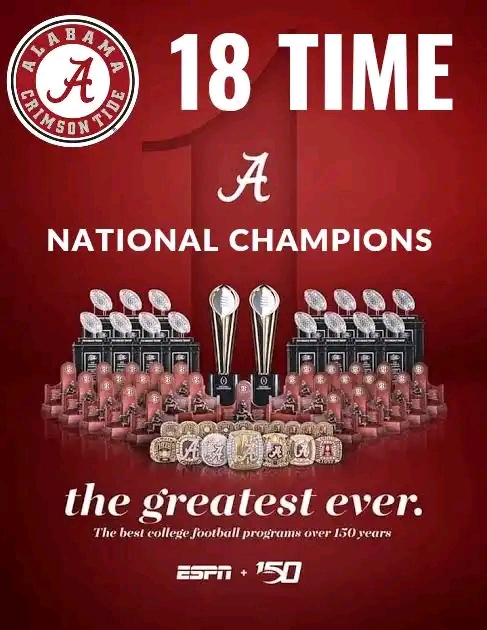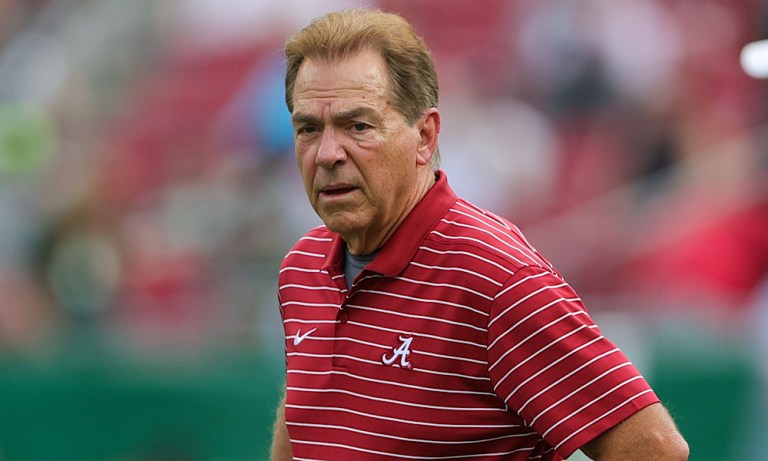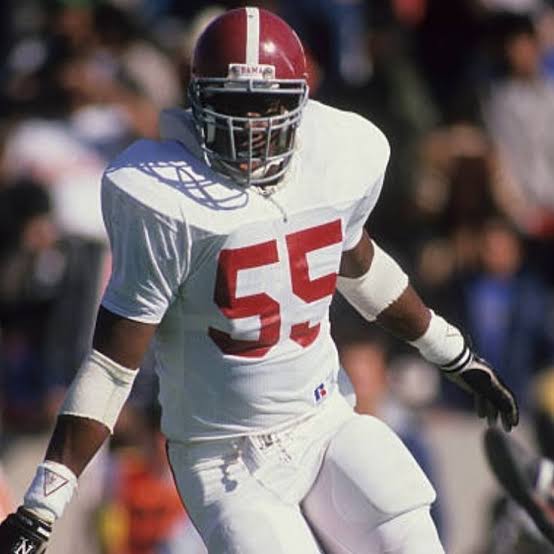
College football has always been a sport steeped in passion, tradition, and fierce rivalries. But few debates ignite more emotion than the question of which program deserves the title of the greatest of all time. That debate exploded this week when ESPN, in a much-publicized segment, declared the Alabama Crimson Tide as the undisputed powerhouse and greatest college football program in history. The announcement sent shockwaves through the college football landscape, drawing immediate backlash from rival programs and their fanbases.
Programs like Ohio State, Georgia, Notre Dame, and Texas were quick to condemn the declaration, calling it biased and dismissive of the legacies and contributions of other storied institutions. Ohio State head coach and former players voiced frustration over the “Bama-first” narrative, citing the Buckeyes’ consistent dominance in the Big Ten, a storied rivalry with Michigan, and multiple national championships as proof of their own elite status.
“We’ve been a top-tier program for decades,” said one former Buckeye. “To erase that history in favor of a narrative that suits ESPN’s SEC bias is disrespectful to generations of players and fans.”
Georgia, the reigning powerhouse in the SEC East and recent national champion, also fired back. Bulldogs supporters pointed out that Georgia has matched Alabama in recruiting and performance in recent years, including toppling Bama on college football’s biggest stage. “How can you declare a team the greatest of all time when another has beaten them when it mattered most—just recently?” said a prominent Georgia sports analyst.
Notre Dame, one of college football’s most historic programs, took a more traditional angle in its protest. The Fighting Irish boast one of the highest all-time winning percentages, seven Heisman Trophy winners, and a legacy that stretches back to the sport’s earliest days. “We are woven into the very fabric of college football,” Notre Dame’s athletic director stated. “Greatness isn’t just about recent dominance—it’s about history, culture, and long-term impact.”
Texas, too, joined the chorus of disapproval. With legendary names like Earl Campbell, Vince Young, and an extensive fanbase that stretches far beyond the state line, Longhorn supporters argued that their brand, culture, and competitive history place them firmly in the conversation for greatest of all time. “We’ve built dynasties, won titles, and defined college football Saturdays for generations,” one Texas alumnus noted. “This conversation should be bigger than one team’s recent run.”
The controversy exposes a deeper issue in college football: the increasing influence of media conglomerates like ESPN in shaping public perception. Critics argue that ESPN’s deep ties to the SEC through lucrative broadcasting deals naturally skew coverage and analysis toward programs like Alabama. The result, they claim, is a distorted view of greatness that favors recency over totality.
Even as the backlash intensifies, ESPN stands by its ranking, citing Alabama’s six national titles since 2009, numerous NFL draft picks, and Nick Saban’s coaching dominance as key reasons for their selection.
Still, the question remains: If not Alabama, then who else? While Bama’s recent track record is unmatched, college football’s rich history offers multiple contenders, each with their own claim to the throne. And if this week’s reaction is any indication, the debat
e is far from over.




